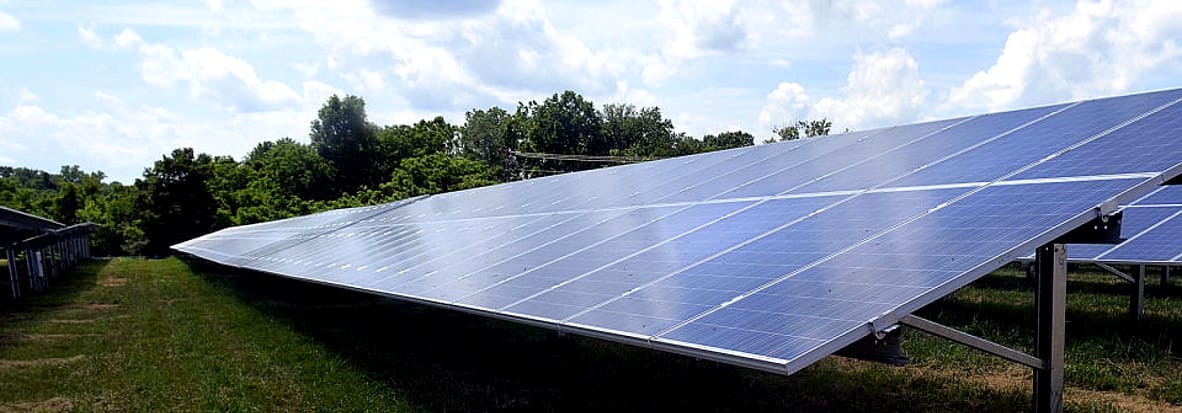Clean Tech Industry Is On The Rise
Clean Tech Industry Is On The Rise
February 3rd, 2015 by Guest Contributor 
North Carolina is fast becoming a national leader in the clean tech industry – creating new jobs, producing innovative new technology and engaging some unlikely new partners.
A recent report by Environmental Entrepreneurs, a national environmental policy group, notes that in the third quarter of 2014, North Carolina ranked fifth in the nation for new clean energy job creation. That’s due in large part to a cluster of clean tech companies in the Research Triangle Park, home to more than 200 companies focused on smart grid technology, efficient water management and smart transportation.
Many of these companies will be on hand for the second annual NC Clean Tech Summit, scheduled for February 19-20, 2015 at the University of North Carolina at Chapel Hill*.
UNC’s Kenan-Flagler Business School’s Center for Sustainable Enterprise and Institute for the Environment co-host the two-day summit focused on the future of the clean tech industry in the state, particularly the future of utilities, the military influence on renewables, and smart cities. Keynote speakers include Retired General Wesley Clark, Jesse Berst, founder and chairman of the Smart Cities Council and David Ozment, senior director of energy for Wal-Mart.
“What the Silcon Valley has done for the dot com industry, the Triangle is doing for clean tech,” says Carol Hee, director of UNC’s Center for Sustainable Enterprise. “But to stay competitive, we need to continue to push the envelope and plan for the next iteration of sustainability. That’s the focus of the NC Clean Tech Summit.”
The growth of the clean tech industry in North Carolina is due to large part to the convergence of the technology companies already present in the area and the state’s pioneering energy policies, including a renewable energy tax credit for companies in the state and the renewable energy portfolio standard (REPS), a state law requiring utilities to get a portion of their electric power from renewable energy sources.
The REPS opened the door for a whole new market of sustainable energy projects, particularly in the solar industry. Summit sponsor Strata Solar reports investing $1 billion in North Carolina solar energy, including 65 solar facilities in 40 counties, and employed 2,000 workers during the past five years.
The state is also home to Fort Bragg, the country’s largest military installation, and its electricity bill is the largest on base. Most of Ft. Bragg’s energy is generated from offsite power plants running on coal, nuclear and natural gas, but the Army is looking at increasing energy efficiency, reducing costs, and installing renewable energy capacity. To date, projects include a green rooftop to lower cooling costs and a solar wall that dries the parachutes of the 82nd Airborne.
These projects are likely to become more commonplace in North Carolina and across the county, as the military looks to reduce operating costs. As a state with not just an Army base, but home to Air Force, Coast Guard and Marine installations, the potential exists for tremendous growth in the clean tech sector to be driven by the military.
As the federal government turns to renewable energy to save costs, more and more local governments around the world are looking to become smart cities. With North Carolina solidifying its hold as a clean tech cluster, it is logical that communities in the state may take advantage of these resources to create smarter cities with walkable neighborhoods, energy efficient buildings and a smart transportation infrastructure.
There are already steps in this direction. Raleigh is the test case for Cree’s LED technology, becoming its first LED city – at an annual savings of $215,000 per year in energy and maintenance costs. Envision Charlotte, a collaborative effort between building owners, managers, engineers, tenants and workers, seeks to reduce energy consumption by 20% in five years, reduce water consumption, improve air quality though alternative transportation options and divert an additional 20% of waste from landfills.
Clearly these major cities are already benefiting from technology leaders in the area, but smaller municipalities may follow suit, if conditions are ripe.
“There are so many technology and sustainability companies and organizations in the area, it would be a shame not to apply them to our needs,” says Greg Gangi, associate director for education at the Institute for the Environment at UNC Chapel Hill. “The application of technology being developed in our own backyard has tremendous potential to benefit our environment.”
It’s clear clean tech is here to stay in North Carolina, but with new technologies constantly emerging, along with new development projects like Chatham Park on the horizon, the industry is still evolving. The implications of that evolution will be felt across the state and around the country.
*This article was sponsored by The University of North Carolina at Chapel Hill
Keep up to date with all the hottest cleantech news by subscribing to our (free) cleantech newsletter, or keep an eye on sector-specific news by getting our (also free) solar energy newsletter, electric vehicle newsletter, or wind energy newsletter.
via http://cleantechnica.com/2015/02/03/clean-tech-industry-rise/

